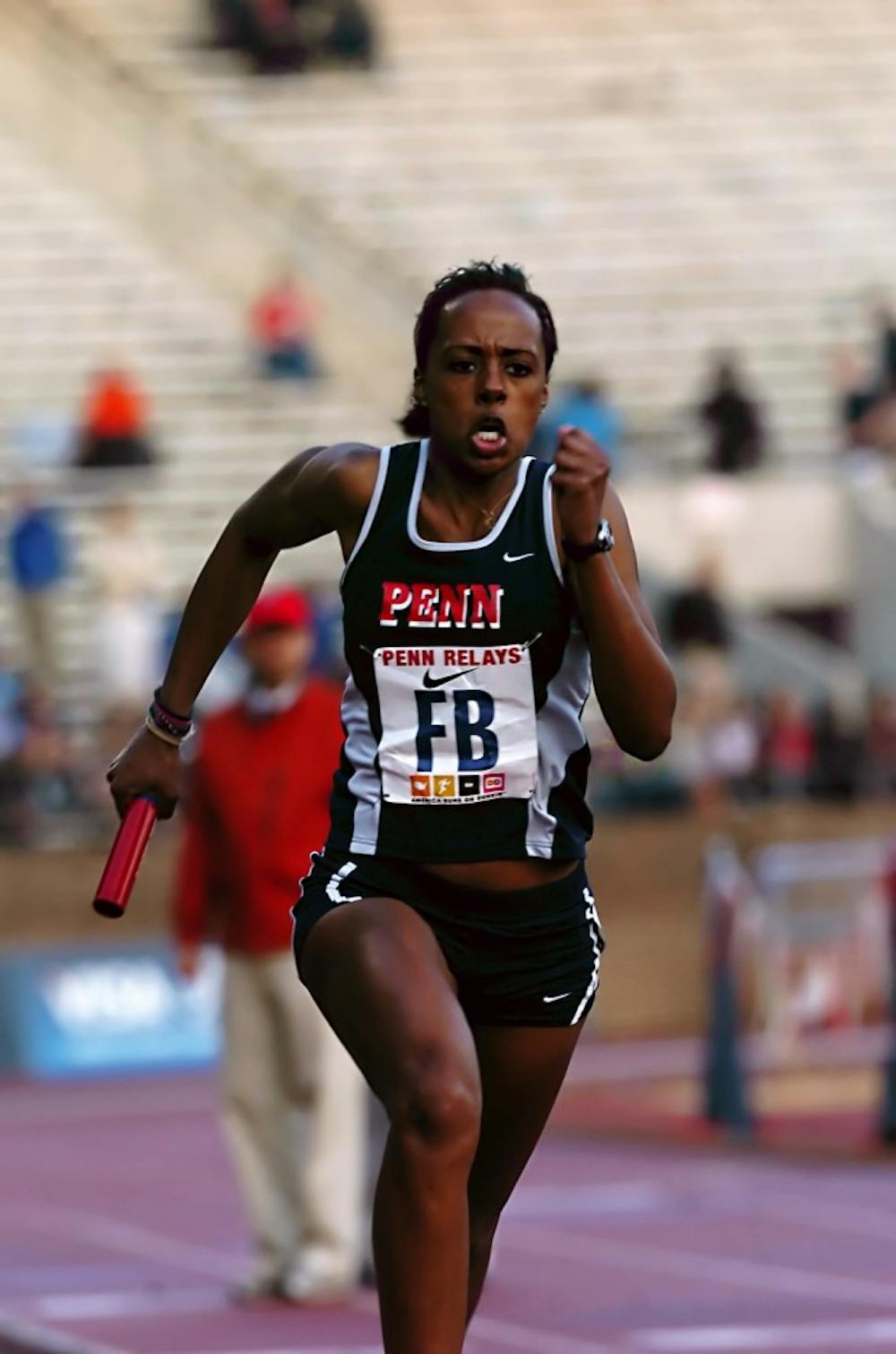Junior sprinter Victoria Strickland doesn’t feel like she has to explain why she — or anyone else for that matter — is at Penn.
But as a black female athlete from Chevy Chase, Md., she often has to deal with “unfortunate” comments from some in her community back home who attribute her Penn admission solely to her track prowess.
“I take offense to that because it’s undermining who I am and what I’ve done in the past, and I feel like that plays into race as well,” she said.
“In terms of external perceptions about being a student-athlete, especially a black student-athlete, I feel like that’s seen as an excuse for why we’re here,” Strickland continued. “I’ve had to deal with that for a while.”
It is apparent that some of the negative perceptions that black student-athletes at Penn have to deal with are the same that all Penn athletes experience, what Strickland called a “stigma.”
Penn football’s senior defensive back Bradford Blackmon has his own reaction to the perception that student-athletes at Penn were admitted only due to athletic achievement.
“The way I see it is, yes, because I did play football, it did give me an opportunity to get into Penn or another Ivy League school that I may not have had in general,” Blackmon said. “But once I got here, I still have to do the same amount of work as anyone else if I want to stay here,” he added, explaining that he has to balance that workload with his time-consuming athletic commitment.
Additionally, Blackmon feels that Ivy athletes are wrongly cast as young adults who do not take sports as seriously — given the Ancient Eight’s relatively low profile when it comes to athletic conferences.
How does Blackmon respond to that?
“I’d say they should go back and look where the sport started. These types of schools are where basketball and football started in America,” he said.
Indeed, Princeton played in the first-ever collegiate football game, and Penn’s basketball history dates back to 1897.
With regards to race, however, neither Strickland nor Blackmon said they have ever faced any real issues within the Penn athletic community.
“Actually being on the team, from an internal aspect, has been amazing,” Strickland explained. “There’s no differentiation in race on the team, we’re all basically one team no matter our year or our race.”
While racial relations have progressed, it bears mentioning that things have not always been that way.
Look no further than Strickland’s coach, Gwen Harris.
When she ran on Delaware State’s club track team in the early ’70s, Harris had to stay in a different hotel than her white teammates when they traveled — something Strickland called “shocking” and “not understandable.”
But Harris, the “rock” of the team according to Strickland, didn’t let that discrimination stop her. She would go on to coach the James Madison University women’s track and field team for nearly 20 years before coming to Penn, where she’s coached for eight years.
People like Harris serve as inspiration for Strickland and her teammates. And — perhaps uncoincidentally — it seems Strickland has taken on some of Harris’ fortitude when dealing with her aforementioned naysayers.
“I don’t let that deter me at all, because I know what I’ve accomplished academically and athletically. I don’t let that bring me down,” Strickland said.
And even though she doesn’t think she has to, Strickland makes one thing clear: “There’s a very large percentage of black students here — general athletes or not — who are exceptionally talented and very intelligent, and that’s why we’re all here.”



